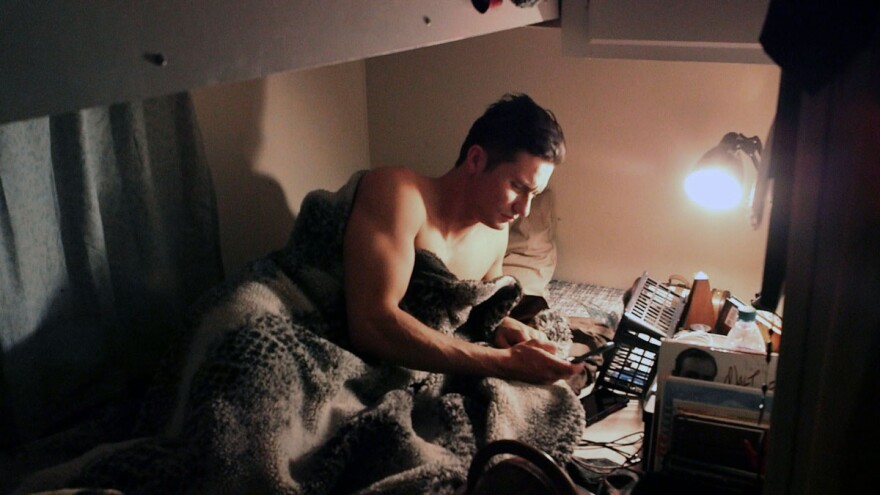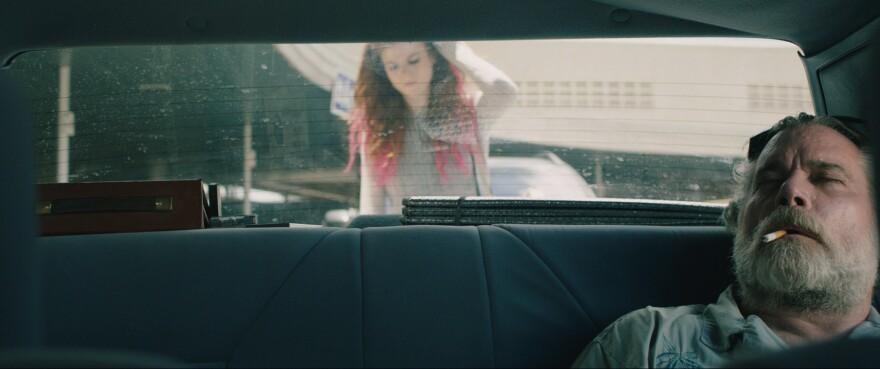Just look around. Most films are made by men, and even many of the pictures made by women are careful not to be too much about women. And some of the films in this year’s Women + Film Festival give an interesting picture of that struggle.
Men: A Love Story is a pretty quirky film. It’s inconsistent; it has a regrettable ending, but it will also provoke tons of conversation, and it’s got a stunning sense of place. Director Mimi Chakarova made the film in reaction to her earlier nonfiction work that had to do with sex trafficking and the disgust she felt about the men she wound up filming. She says right at the top of Men: A Love Story that she wants to find better men than what she filmed before and she wants to ask them about love.
Her search takes her across a swath of America. In the West she talks to some cowboys – not movie-star cowboys but men who live in trailers in Death Valley or look like they probably haven’t done much ranch work in a long time and many struggles ago. They tend to be taciturn, and when they do talk, they lodge themselves in the kinds of clichés about love and women that you hear in country western songs.
But if you look at Men: A Love Story more than you listen to it, the film comes across as a startling portrait of loneliness. Mimi Chakarova shows wide expanses of western prairie, often from a car so you feel like you’re just passing across this terrain. She drives into small towns with dreary one-story homes that look starved for company or affection, juxtaposed with water towers and abandoned industrial buildings. There aren’t any people in these shots. The ironically-filmed wide-open spaces stand there empty and grim – but also full of a yearning beauty.

When the search for men to talk about love reaches the northeast, all of a sudden – and for reasons I can’t figure out – the men look like big city lawyers or brokers in late middle age, with lots of property, and here the vistas are of harbors and the ocean. The abrupt change in social class is alarming, but the settings show that while the loneliness is better-dressed, it’s still loneliness and despair.
Another film I suspect will arouse a good bit of talk about films made by women is first-time director Amanda Sharp’s fictional Sticky Notes. The picture starts with Athena (Rose Leslie), a dancer with a spiky attitude and an owl tattoo on her back, trying to make it in New York. She learns in the middle of a hard-edged lovemaking session that her father in Florida has lung cancer. He’s a chain smoker and a self-serving boor, and it’s plenty hard for Athena, as well as the audience, to work up any genuine feeling for the guy. He also leaves sticky notes around his house that either tell people what to do or give unwanted and basically useless advice.

The crux of the movie is how Athena tries to deal with this obnoxious and dying man, and still maintain some hint of her integrity as a person and a woman. It’s obvious that her purple hair and frequent contempt for other people are not going to serve her well in the long run. But the way the movie imagines Athena finding a more successful approach to living is problematic.
Only a few women filmmakers have succeeded to make a career of films fully centered on the experience of women – the late Czech filmmaker Vera Chytilová and the still active 88-year-old Agnes Varda in France are the great ones. The strength of Women + Film is that it gives voice and screen to young filmmakers trying to get there.






